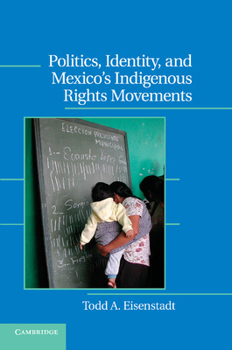Politics, Identity, and Mexico S Indigenous Rights Movements
(Part of the Cambridge Studies in Contentious Politics Series)
Select Format
Select Condition 
Book Overview
Drawing on an original survey of more than 5,000 respondents, this book argues that, contrary to claims by the 1994 Zapatista insurgency, indigenous and non-indigenous respondents in southern Mexico have been united by socioeconomic conditions and land tenure institutions as well as by ethnic identity. It concludes that - contrary to many analyses of Chiapas's 1994 indigenous rebellion - external influences can trump ideology in framing social movements. Rural Chiapas's prevalent communitarian attitudes resulted partly from external land tenure institutions, rather than from indigenous identities alone. The book further points to recent indigenous rights movements in neighboring Oaxaca, Mexico, as examples of bottom-up multicultural institutions that might be emulated in Mexico and elsewhere in Latin America.
Format:Paperback
Language:English
ISBN:1107696763
ISBN13:9781107696761
Release Date:August 2013
Publisher:Cambridge University Press
Length:226 Pages
Weight:0.74 lbs.
Dimensions:0.5" x 6.0" x 9.0"
Customer Reviews
0 rating





